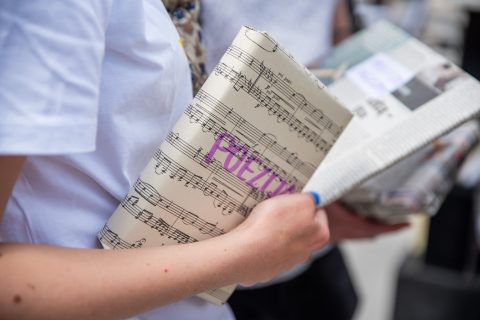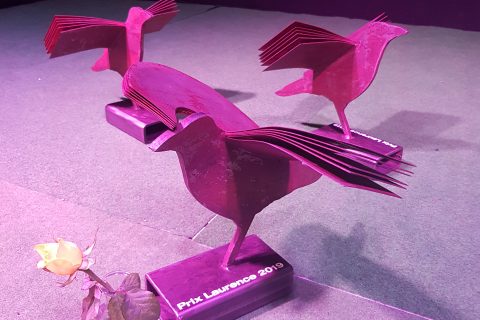Kaunas has become a source of inspiration for many writers. Many famous authors grew up in this city where classical and contemporary poetry and prose communities are coming together more actively, and new initiatives are being created. But until now, the city didn’t have its own literary festival. Rūta Eidukevičienė, Dean of the Faculty of Humanities of Vytautas Magnus University, and Laurynas Katkus, a writer, decided to fix the situation. The main program of the first international writers and books festival Kaunas Literature Week – combining virtual and live events – will take place on May 20-23. We talked to the organizers about the love of books, the importance of literature to a person and a city and the goals of the festival.
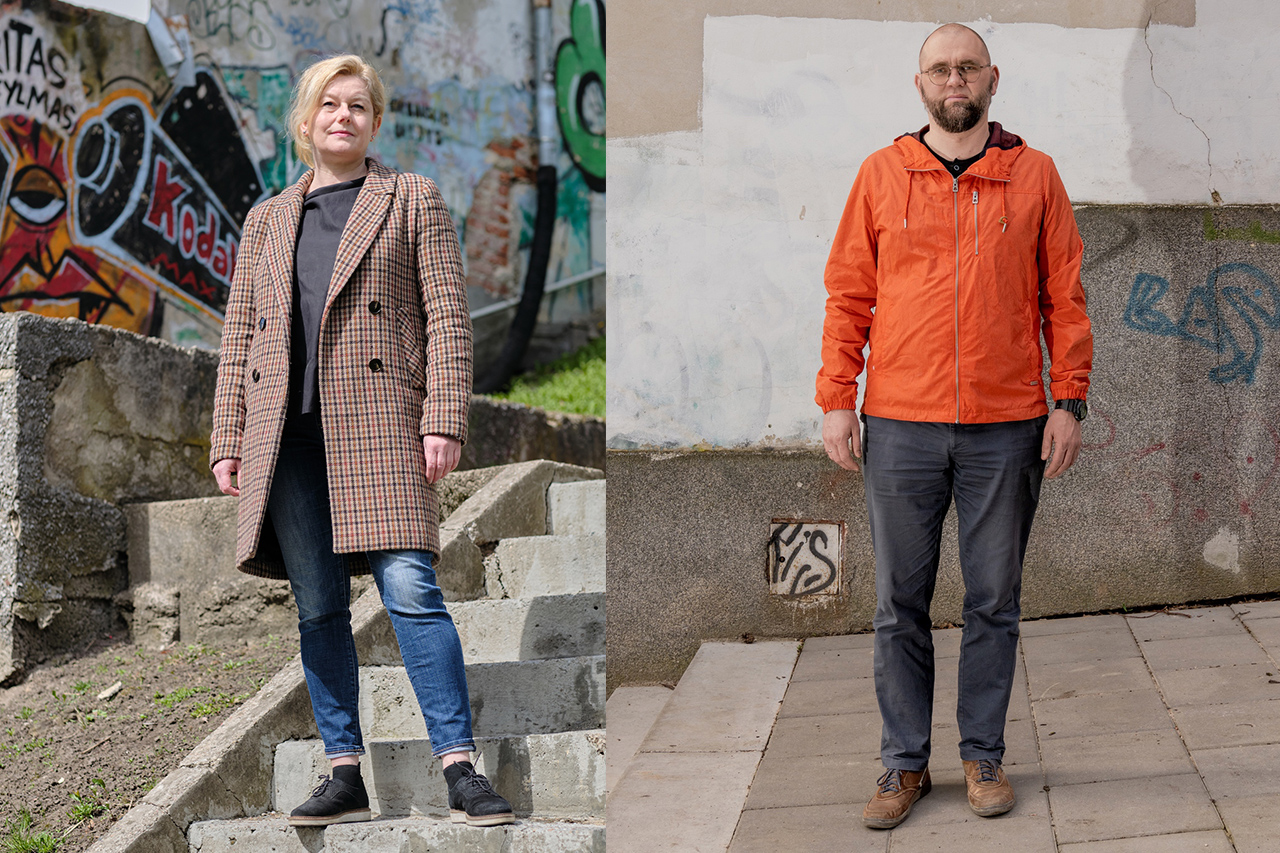
What are your first vivid memories about reading?
Laurynas Katkus: I started reading when I was five years old. How old were you, Rūta, when you started?
Rūta Eidukevičienė: I don’t remember exactly, but I really enjoyed reading as a child, especially in the evenings and at night, although my parents forbade it. My mother would come in to turn the lights off saying that it was enough but after she would leave, I would resume flipping the pages.
L. K.: My parents didn’t forbid me to read, maybe because they had a large library and loved books. However, during a boring class at school, I would open my briefcase, place Three Musketeers or anything by Jules Verne and would read with one eye, glancing behind the desk. And when the teacher would approach, I would kick the briefcase and the book would fall in it. Unfortunately, sometimes teachers would catch me in the act and confiscate the book.
For both of you, literature is not only a hobby but also your job and an area where you create. It is often said that a hobby which has become a job no longer provides as much joy as a leisure activity. Is this true in your case?
R. E.: At work, you have to read a lot and quickly, immediately thinking about certain nuances of literary science. In order to get rid of occupational diseases, sometimes I have to pick up a good crime story or even a banal romance novel and even then, during the first pages, I still think about what formula was used there and only somewhere around the page 50 I relax. After a couple of easy stories, I can happily dive into much more serious literature.
L. K.: For me, reading is a passion that is very difficult to satisfy – the appetite comes with eating. In addition, reading can vary. You read a newspaper, Facebook posts, furniture assembly instruction in one way and a light crime novel or academic literature in a completely different way. As the ways of accessing text change, reading always remains relevant. Of course, sometimes it happens that books or computer tire you and then you happily put them aside in the evening and go for a walk or listen to music. But then the morning comes, and the interest returns.
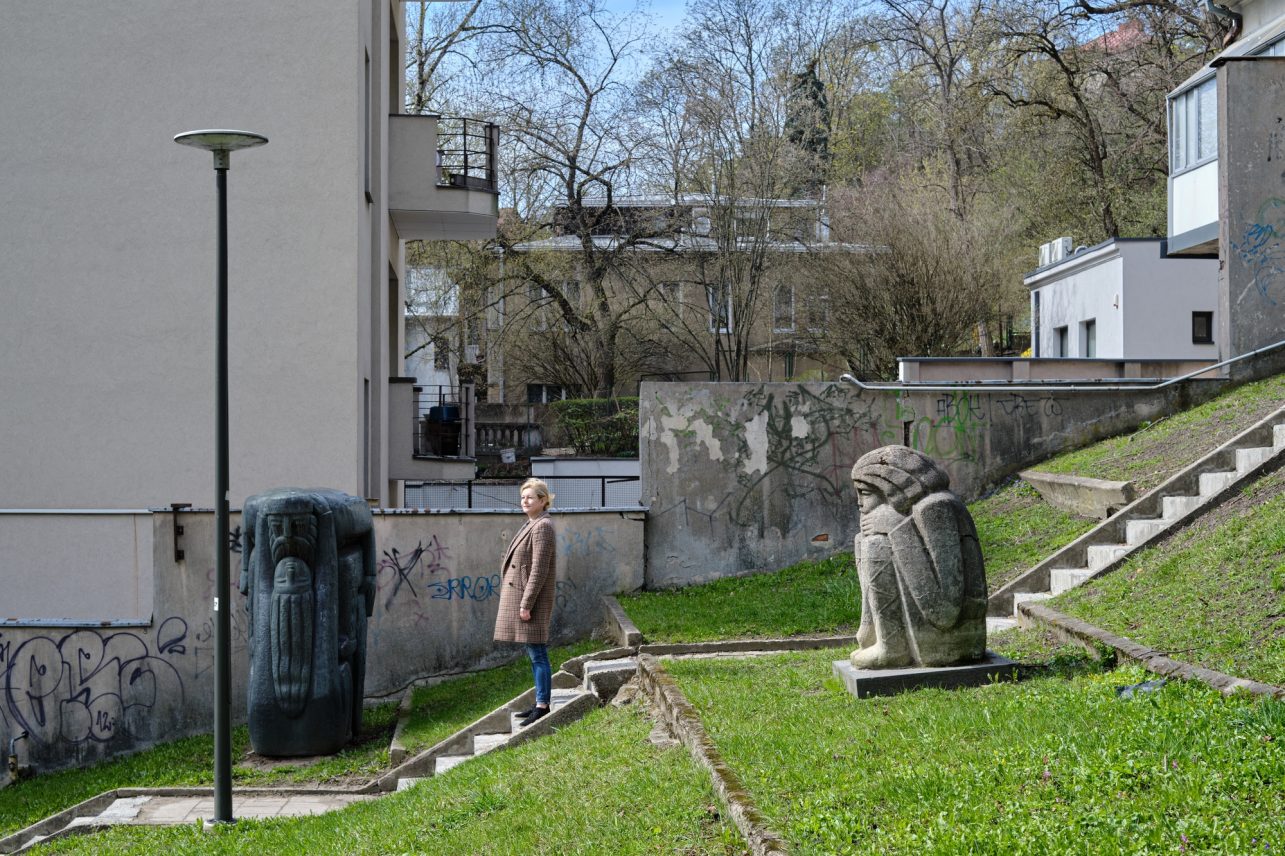
It is often said that it is important to develop young reader’s critical thinking. But how can someone improve their reading skills on their own? What can help you discover literature if it seems unreachable and uninteresting at that moment?
L. K.: Today there is a tendency to technologize this issue: there are teachers, different methods. But no way is omnipotent, and results are never fast. It should not be forgotten that critical thinking begins with an individual’s personal relationship with the book. My advice is to read good literature as it contains the maximum amount of information. There will be heroes, social problems, philosophy, emotional experiences, and irony, which you must grasp, and also understand the author’s complex relationship with the characters and the text itself.
R. E.: When it comes to young people, I think one of the biggest challenges is finding a text that would get them hooked. It can be a good traditional literature, but it can also be something new that might have an interesting narration style or a relevant topic, say, story about sports, social network, or video games. It is important for the reader to feel pleasure and later it will be possible to expand the horizons with other works.
L. K.: I think there are two ways. The first one was suggested by Rūta – to choose a contemporary, understandable, intriguing story with a strong plot. But there is also another way. Many people remember a decisive moment when in their youth they read a book the letters, words and sentences of which they recognized but didn’t understand what it was about. Still, although things seemed confusing at the time, they felt that there was meaning there. This kind of encounter with the text makes you brace yourself up. When thinking about the youth’s relationship with literature, we should not always take the lowest possible denominator. More complex literature is a challenge that can shake a person up and change their life.
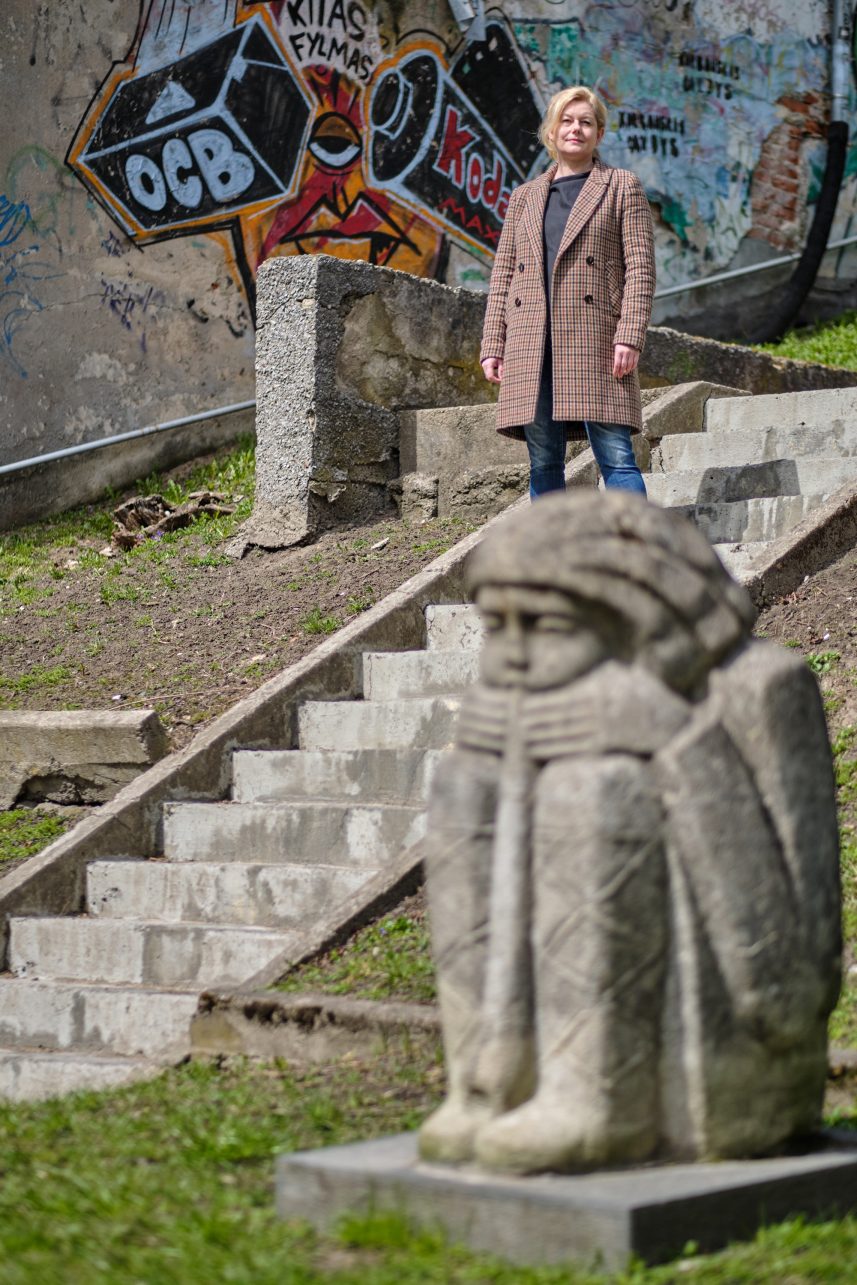
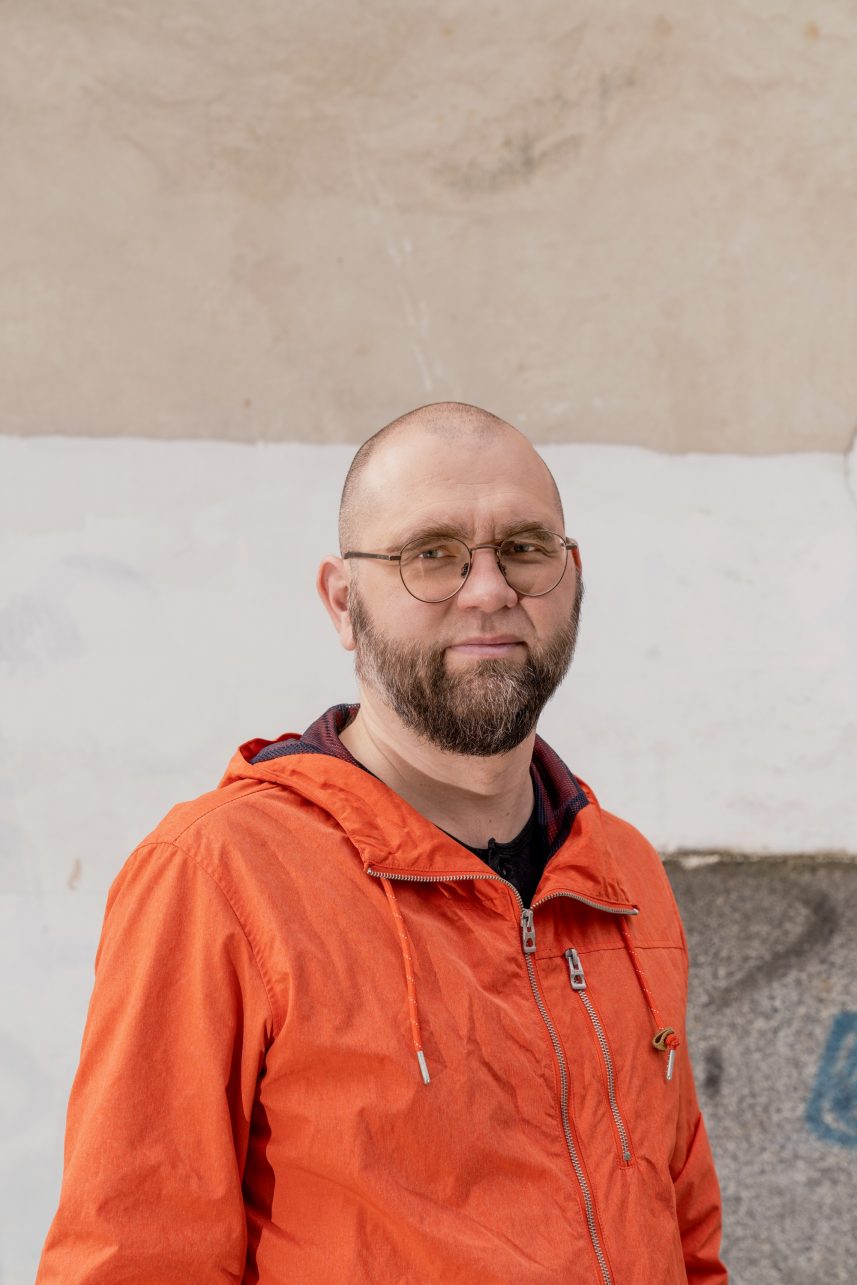
Since you have used the phrase “good literature” more than once, I want to ask you what it means to you. Are these classic, time-tested works or something else?
L. K.: Classics are time-tested bestsellers, and in human history, the most copies sold were of the bible and Shakespear’s works rather than Dan Brown’s or Coelho’s. But it doesn’t mean we shouldn’t value modern literature. Certain issues and values repeat in all works, but only contemporary texts can directly convey today’s problems, challenges, and ideas. A good literature, which creates a unique world, also requires literary knowledge. Literature is unique in that it is hopelessly democratic. Everyone can choose their preferred genre, writer or form.
R. E.: It is also very important how the story itself – I’s expression – is controlled and presented in the text. It also helps to distinguish a good book from a mediocre one.
In part, it even seems strange that Kaunas did not have its own literary festival. Have you noticed this gap for a while now? What exactly motivated you to start organizing the festival?
L. K.: This idea has been on my mind for some time. I think there is a lack of modern conceptual literary events in Lithuania. On February 16, 2019, just like every year, I came to Kaunas with my family. Rūta invited us to her place, and I shared my idea with her.
R. E.: Laurynas is from a creative field. He is a poet, a translator, and a writer and I am a literary researcher and lecturer. I think this team of ours worked out. As a person who writes, Laurynas has participated in many festivals, knows what happens behind the scenes, and his experience is very helpful. The idea of the festival has always interested me because with my students we don’t analyze texts only but also the literary field both in Lithuania and abroad.
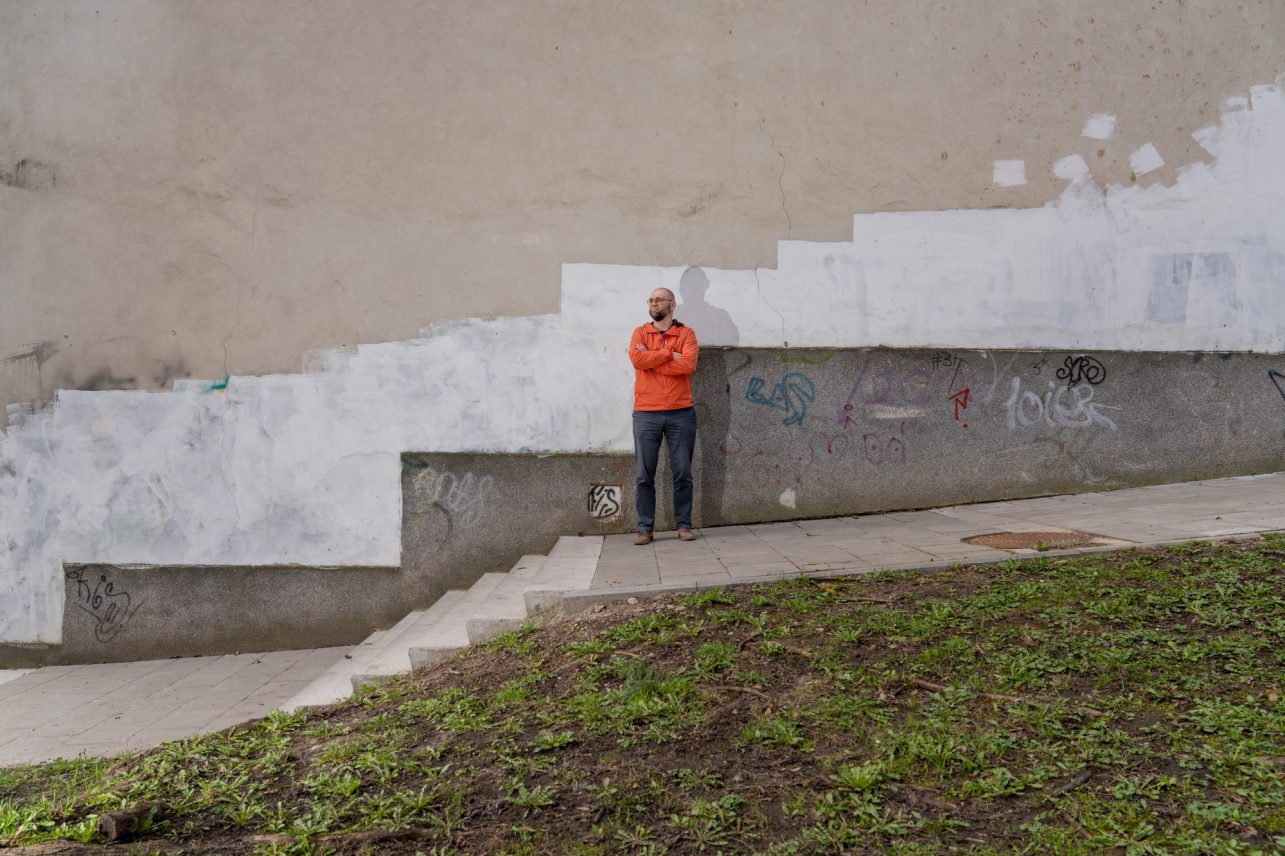
Why does Kaunas need such a festival?
L. K.: We want to present vibrant contemporary literature in all its diversity as well as texts in different languages and from different countries. Therefore, the festival program is international, and we hope that it will create a suitable space to openly share ideas. Another goal is to strengthen the connection between the reader of the text and its creator. The reader is often interested in seeing and getting to know the author of the book and sometimes they even want to get acquainted with the writer’s personality, their history, culture, home country, and only then they start reading their work. We have some strong publishing houses capable of perfectly advertising certain works. Of course, it is not bad, but in addition to the well-known, popular authors of contemporary literature, there exists less popular but valuable literature. Through real-time conversations with writers, we want to help readers see the different sides of contemporary literature.
R. E.: While organizing the festival, we noticed one tendency and dedicated a section Homefolk and Expats to it, which will present writers born in Kaunas, who later moved to other cities or countries, and those who stayed. We want to invite the authors who left to return to Kaunas and establish a long-term dialogue. Another task is to unite a rather active and diverse field of Kaunas literature. We have both a slam community and a number of poetry events and prose writers, but so far there has been a lack of a unifying initiative. Talking to various cultural organizations and communities, we hope to bring together and unite Kaunas writers.
It is largely a question of the citizen’s own self-awareness whether they are interested in and proud of their environment, its reflections in books.
Do you think Kaunas literature has a certain character? Maybe you have a favorite author or a work that reflects this city?
L. K.: For me, Kaunas is first and foremost about Julius Kaupas’ Doctor Kripštukas in Hell. When I visited Kaunas as a child, I always looked for the door in the Town Hall Square, through which the character enters hell.
R. E.: Kaunas literature is very local to me. As I read, I recognize specific places, the routes of the characters, I suspect where they will turn at one point or another. Some places overlap and become denser, such as the stairs leading to the city center, Laisvės Avenue and Santaka, or transform and expand, as in Mark Zinger’s novel Around the Fountain, or Little Paris (Aplink fontaną, arba Mažasis Paryžius).
What makes literature important to the city?
R. E.: I think that literature itself and the events that accompany it can stimulate discussion and raise the level of culture. Literature can help to analyze the issues of both personal and communal identity, introduce to other cultures, but first and foremost, it offers a different way to look at your environment.
L. K.: Literature’s contribution the city is huge. It is hard to imagine Dublin without Joyce or Prague without Kafka. Of course, they are the classic authors, but it is also worth looking for a connection with modern texts, because without them you are left to live in solitude without sound and sight. It is largely a question of the citizen’s own self-awareness whether they are interested in and proud of their environment, its reflections in books.
What book would you recommend that aptly reveals the city’s identity?
L. K.: I was recently fascinated and hooked on the book Something So Real (Kažkas tokio labai tikro). It contains conversations with Soviet-era dissidents: rockers, members of the ethno-movement, artists, political deportees, underground activists, nuns. Many of these people are from Kaunas, and that allows you to get to know the city.
R. E.: One of the books I read recently is R. Kmita’s novel Remyga. It is a multi-layered novel that reveals the identity of the city, in this case Šiauliai, and shows that all cities can be interesting, and literature can popularize the city.

